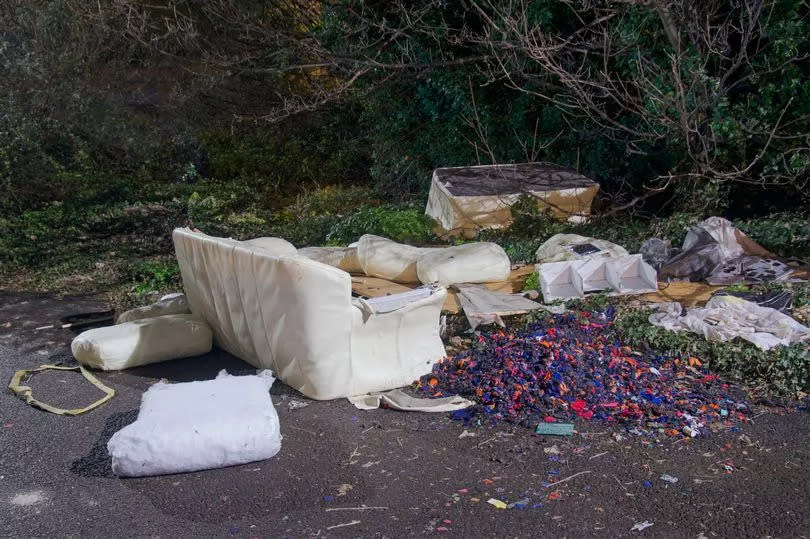'Fly-tipping on your land could cost you £50,000 - this is what to do'

Fly-tipping is a nuisance, unsightly and often dangerous. Alongside the annoyance of finding unwanted rubbish dumped on their land, owners themselves could be fined - or even imprisoned - if they don't deal with it.
Waste expert Paul Jackson, from NRC Business Waste, said: "The statistics show a concerning trend in fly-tipping incidents, with fines totalling £784,923 in the past year alone, according to Defra figures. It's clear that fly-tipping continues to be a widespread issue across the UK.
“Fly-tipping is the illegal dumping of waste, posing significant environmental and legal challenges. With around one million incidents reported annually, it is crucial to understand the severity of this issue. Fly-tipping can involve anything from household rubbish to hazardous materials, all contributing to pollution and posing public health risks.
"Many people don't realise the legal consequences of fly-tipping, even if they haven’t done it. Under Section 33 of the Environmental Protection Act 1990, landowners can be fined up to £50,000 and face imprisonment if waste is illegally dumped on their land."
Section 33 of the Environmental Protection Act (EPA) 1990 in England and Wales makes it illegal to deposit, treat, keep, or dispose of controlled waste in a way that could harm human health or pollute the environment. This includes:
Small-scale fly-tipping
Large-scale waste disposal without a permit
Depositing controlled waste or extractive waste
Knowingly causing or permitting controlled waste to be deposited
Dealing with fly-tipped waste on your land
Paul said: “If you find fly-tipped waste on your property, avoid touching the waste directly in case of potential hazards like syringes and chemicals. Document important details such as the time of the incident, types of materials dumped, and any eyewitness accounts. This information will aid authorities in their investigation.
"Although property owners often bear the responsibility for clearing fly-tipped waste, working with local authorities is vital. Report the incident to relevant agencies, such as the Environment Agency or your local council, who can guide and assist in responsibly clearing the waste. Collaborating with authorities can ensure proper handling and may help reduce costs if the perpetrators are caught.”
Preventing fly-tipping
Paul said: “Prevention is the most effective strategy against fly-tipping. It reduces the impact on local authorities and property owners. Installing barriers or gates can help deter unauthorised access to your property. Keeping areas visible through strategic landscaping reduces the chances of hidden areas being used for dumping.
“Enhancing security with lighting and surveillance cameras can deter potential offenders and aid in identifying them if incidents occur. Additionally, using lockable, enclosed skips for waste disposal on your property can prevent opportunistic dumping, promoting responsible waste management practices.”

 Yahoo News
Yahoo News 
